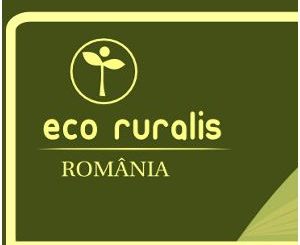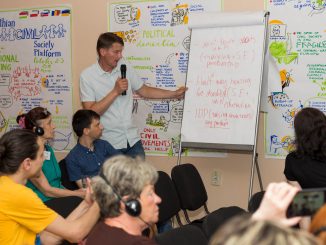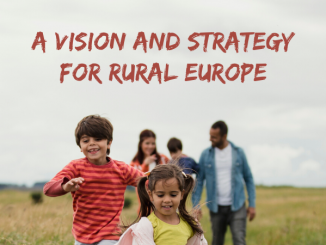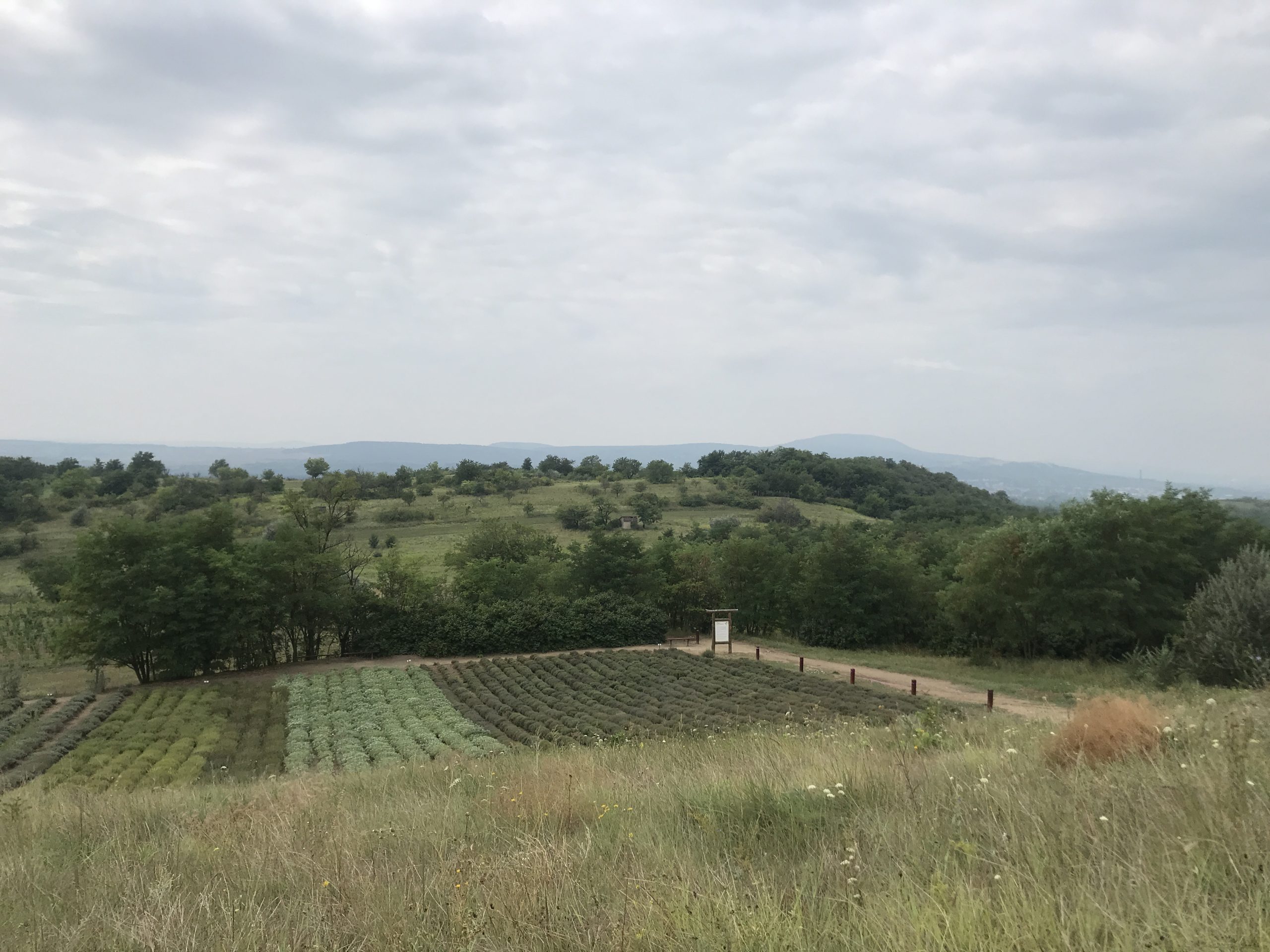
By Péter József Bori and Noémi Gonda
Rural Hungary has been Viktor Orbán’s ticket to three terms in power. With the April 2022 elections approaching, is there a chance for emancipation from authoritarian populist rule to arise from this very same countryside? Drawing on original research, Péter József Bori and Noémi Gonda argue that by reforming our ways of producing food, we can also initiate a radical reform of the undemocratic systems that govern us. Final installment of an exclusive three-part series.
The date will be April 3, 2022. Hungarians will head to the polling stations to vote in the quadrennial parliamentary elections. This time, voters will decide whether to grant Viktor Orbán a fourth term as Prime Minister or whether to put their trust in the newly formed opposition alliance – a coalition that is comprised by parties ranging from far-right to socialists, greens and centrists, with a single political objective: to oust Orbán from power.
The rural vote will be decisive in influencing which way the pendulum swings. In Part II of the series we described how Orbán’s regime has radically transformed the Hungarian countryside over the past decade. Today, the countryside is more concentrated, more exclusionary than ever before, and primarily favours large landowners and government-friendly oligarchs. At the same time, most rural media outlets are owned and controlled by the regime’s economic and political network – meaning Orbán’s pro-peasant rhetoric and fear-mongering propaganda can infiltrate and influence rural mindsets.
So, in such an uneven playing field, is there a chance for emancipation from authoritarian populist rule to arise from this very same countryside? In this final article we argue that there is. That, by reforming our ways of producing food, we can also initiate a radical reform of the undemocratic systems that govern us. In order to achieve this, however, we must first rethink what we mean by sustainability, emancipation and democracy: for whom, by whom and at what costs?

Slippery slope to pseudo-sustainability
This is important because authoritarian populist regimes such as that of Hungary have the ability to take progressive concepts that signify transformation and use them to promote business-as-usual solutions. For example, we’ve met with pro-regime oligarchs who run organic farms and have visions of creating cooperatives with other organic farmers. Sounds great, but after some digging, it became clear that what they envision is a top-down system that further concentrates land into the hands of a few wealthy investors.
Or take the concept of integrators (see Part II – integrators are large companies that establish contracts with farmers). Representatives of the country’s biggest integrators told us that they were providing farmers with security, pertinent advice for production – and even a means to contribute to the survival of uncompetitive smallholders. In a way, they argued that integrators have an emancipatory role: farmers who join them can be freed from the uneven competition of the market.
Yet, the ‘emancipatory alliances’ promoted by integrators are controlled by and enrich the country’s wealthiest few and are underpinned by neoliberal and capitalist models of production. Values that put the environment on the back burner and promote monoculture.
So, there is a slippery slope from sustainability to pseudo-sustainability, from emancipation to pseudo-emancipation. Sustainability must mean environmental sustainability which requires re-thinking our ways of living with the land, but also social justice, equity and democracy. Emancipation must mean the process of building caring collectives around our commons, well-being, and affective relations – within the human and non-human worlds alike.
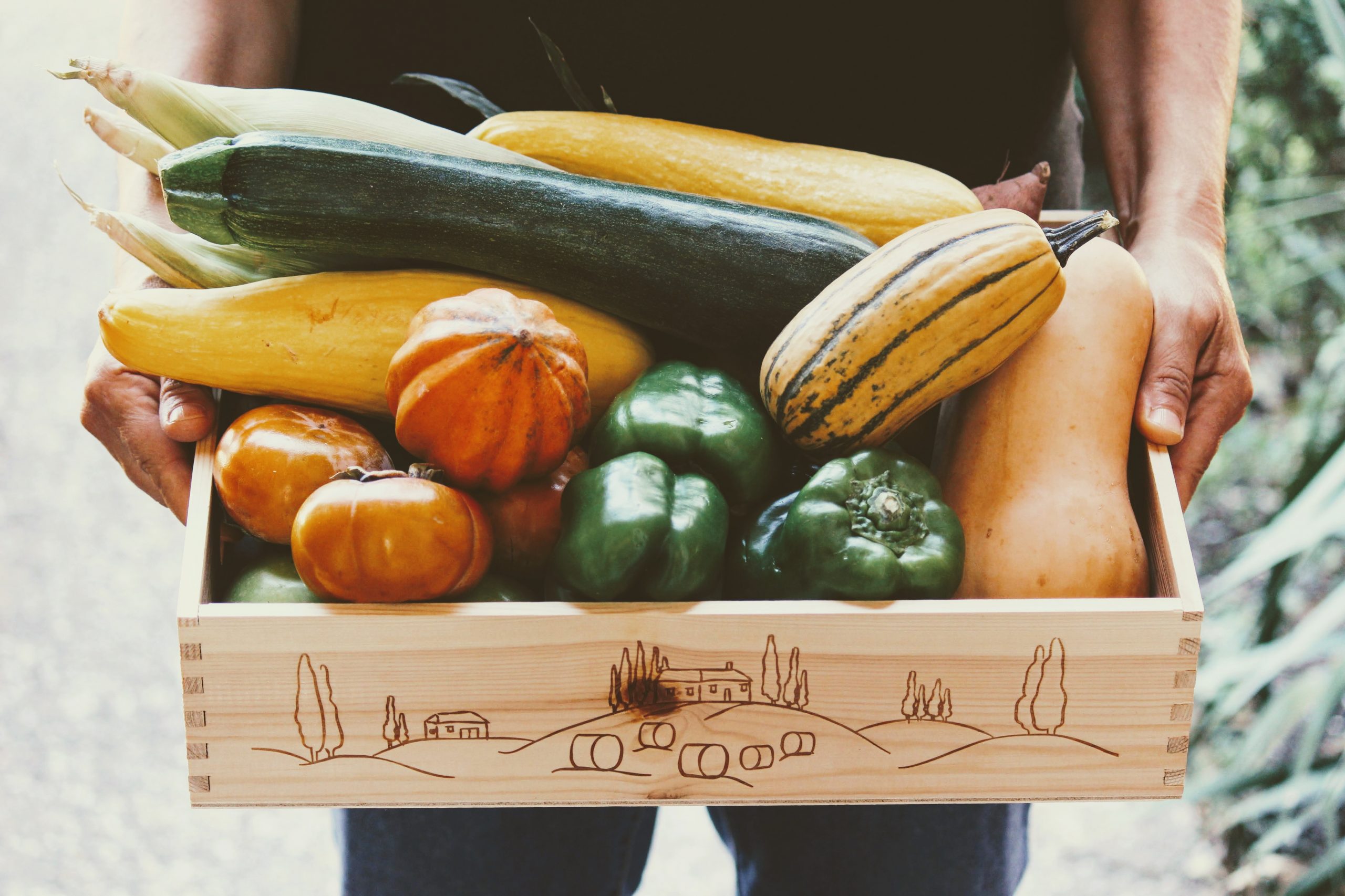
Alternative farming as a democratic struggle
When we did our research across the country, it was precisely these potentially emancipatory initiatives we tried to find (as most of our respondents requested anonymity, we will not be naming concrete initiatives here).
We spoke to farmers implementing Community Supported Agriculture (CSA); regenerative animal husbandry; permaculture; agro-forestry; market gardens and basket communities. The variety of farming models matched the variety of people pursuing them: young intellectuals-gone-rural; multi-generational family farmers; emigrants returning home; and people who chose to make a living in the countryside, despite growing up in poverty in the very same place.
Despite their differences, on their respective paths towards emancipation, they were all mobilising strategic alliances, creating counter-knowledge, as well as reclaiming emancipatory subject-positions. These sounds like complex terms, but in fact they are pretty straightforward.
The trauma of forced collectivisation during the Socialist era means that today, many Hungarian farmers prefer to work independently and alone. While this is understandable, the increased pressure caused by land concentration (see Part I and II) means that cooperation is one of the few avenues for small- and medium farmers to survive.
Cooperation is therefore a strategic alliance, and something many of our interviewees rely on to re-think sustainability and democracy in the countryside. Alliance often happens locally, by sharing tips, tricks and best-practices with neighbours and other like-minded growers. Sometimes CSA initiatives source some of their products from other nearby farmers as a strategy to balance out product shortage. But we live in a digital age, and many farmers provide support to each other even from opposite sides of the country, through Facebook groups, message threads, webinars and so on.
These platforms are crucial in producing counter-knowledge. While official policy and formal education often lag behind – or purposefully ignore – alternatives to conventional farming practices, our interviewees build bastions of these knowledges. Their ability to connect with other farmers within and outside of Hungary means they can access, experiment with and share new (or old!) ways of producing.
And finally, almost all our respondents claimed emancipatory subject-positions. They were all farmers but of a different kind: the kind that understands the co-constitutive relationships between environmental sustainability and democracy and who denounces the ways through which authoritarian populist politics are harmful for food security. Some were involved in local politics, research, environmental activism or community building initiatives.
Of course, there are ambiguities everywhere. Some of our respondents pursue alternative agriculture on lands that were bought through speculation in the 1990s by their parents. Others combine agroecological ways of thinking about farming with exclusionary views on minorities such as the Roma population. This is precisely why it is important to agree and be clear on what emancipation and sustainability should look like – they cannot be used as avenues for exclusion, marginalisation and authoritarianism.
Many farms we visited embody a new way of thinking that challenges today’s embedded rural structures, and recognises that not everything is black or white, right or wrong, friends or enemies – as populist politics like to suggest.
The roads towards emancipation are rocky. Albeit slowly, emancipatory initiatives are growing and spreading. They share knowledge and reinvigorate communities that are based on visions of sustainable, healthy and local consumption. They question oppressive regulation, and sometimes manage to bypass it. Bit by bit, like raindrops on a stone, they might just help erode the authoritarian regime of Viktor Orbán through providing the basis for democratic change.
History has showed us time and again that emancipation does not only come from grand acts. Small acts of resistance, reworking and re-signifying can constitute the building blocks of the radical change that many of us are thirsting for.
Download the full series as a PDF
 Noémi Gonda is a researcher at the Department of Urban and Rural Development at the Swedish University of Agricultural Sciences. She holds a PhD from Central European University. She is currently doing research on justice and conflict resolution in resource management as well as on the linkages between natural resources depletion and authoritarian populist political regimes. Her empirical research field sites are in Nicaragua and Hungary. Previously to becoming a researcher, she worked in Nicaragua, Honduras and Guatemala with smallholder farmers, indigenous groups and international organisations. Noémi is particularly interested in exploring how radical social and environmental transformations towards justice and equity can emerge, and the role of scholar-activists in supporting the emergence of such transformations.
Noémi Gonda is a researcher at the Department of Urban and Rural Development at the Swedish University of Agricultural Sciences. She holds a PhD from Central European University. She is currently doing research on justice and conflict resolution in resource management as well as on the linkages between natural resources depletion and authoritarian populist political regimes. Her empirical research field sites are in Nicaragua and Hungary. Previously to becoming a researcher, she worked in Nicaragua, Honduras and Guatemala with smallholder farmers, indigenous groups and international organisations. Noémi is particularly interested in exploring how radical social and environmental transformations towards justice and equity can emerge, and the role of scholar-activists in supporting the emergence of such transformations.
 Péter József Bori is an independent researcher with degrees from the University of Copenhagen in Denmark and the University of Sussex in the United Kingdom. His research focus is on post-Soviet European rural development and the appropriation of environmental and rural narratives by authoritarian populist regimes. He is interested in the emancipatory potentials of rural regions and how small-scale agricultural initiatives (i.e. Community Supported Agriculture, permaculture) can produce new avenues towards democratic reform.
Péter József Bori is an independent researcher with degrees from the University of Copenhagen in Denmark and the University of Sussex in the United Kingdom. His research focus is on post-Soviet European rural development and the appropriation of environmental and rural narratives by authoritarian populist regimes. He is interested in the emancipatory potentials of rural regions and how small-scale agricultural initiatives (i.e. Community Supported Agriculture, permaculture) can produce new avenues towards democratic reform.
More on Hungary
Letter From The Farm | Rasputin The Ram & The Ethics Of Lamb For Easter Dinner
More on rural populism
Quietness & Adaptability – Ukrainian Peasants’ Responses to Land Grabbing & Agribusiness Expansion



